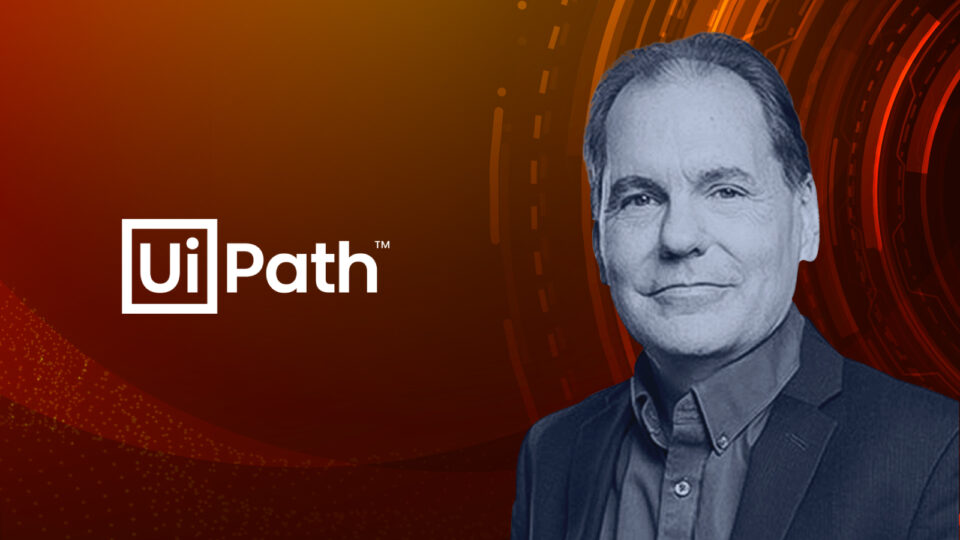“Organizations need IT and application security frameworks that will fortify the protection of their automation efforts and combat malware and cyberattacks.”
Hi Ted, welcome to iTechnology Interview Series. Please tell us about your journey in the automation industry. What inspired you to start with UiPath?
I’ve been fortunate to work in the software industry for over three decades with most of this time spent building enterprise software products. I love the enterprise and I love building platforms that help customers move their businesses forward. Integration of business applications and systems has been a persistent challenge for customers where the goal has always been to improve business processes.
Automation platforms bring a disruptive approach to this problem – being centered on UI automation it changes the game. UI automation allows all of the work to be captured and emulated so it can automate the full process and not just a part of it. Integration problems are 100% problems – UI automation can reach any system or data that the eye can see. And, as the platform emulates the work of people, it’s very intuitive and easy to develop solutions. Our customers can almost instantly unleash new development capacity on old and new problems. So, at the most simplistic level, I came to UiPath because I believe it is one of the most important enterprise platforms of our time that is fundamentally transforming how our customers work.
You work with some of the biggest brands like Cisco, EY, Sonic Automotive and Xerox. Could you tell us how these companies managed to transform their digital journeys using UiPath?
UiPath focuses on enabling brands and organizations to operate and thrive as a digital business. Our technology enables our customers to become fully automated enterprises – positioning them to take full strategic advantage of automation across their business to quickly benefit from new opportunities, become nimble in the face of disruptive challenges, and free their workers to be more creative and people-facing.
EY, for example, uses our software to provide capabilities that are helping companies develop new services or connect their existing systems that increase speed and efficiency and improve and transform services. With UiPath automation, organizations across industries can correct inefficiencies, improve productivity, and expand top and bottom-line performance.
What kind of IT and application security frameworks does an organization need to fully scale their automation efforts?
Organizations need IT and application security frameworks that will fortify the protection of their automation efforts and combat malware and cyberattacks. These frameworks should have end-to-end visibility capabilities that support fast, targeted action against security threats. That is why UiPath partnered with CrowdStrike to extend endpoint security to RPA, enabling full visibility to enhance protection and accelerate threat hunting, investigation, and remediation. Our platform also provides robust governance capabilities such that our customers can ensure compliance with their desired IT and security policies.
How have Cloud and Automation trends evolved in the last 2 years? What made COVID-19 such a huge disruptor for the entire Automation ecosystem?
From a business perspective, the pandemic was a catalyst for organizations to kickstart their digital transformation. The shift to remote work prompted a huge organizational overhaul for every global business, requiring an immediate acceleration of digital transformation efforts. Using automation, businesses that once mapped digital strategy in 1-to-3-year initiatives are now delivering digital outcomes in days or weeks. Business leaders have shifted from thinking about transforming digitally, to now operating digitally.
The challenges caused by the pandemic – ones we are still currently facing – show why it is so important to operate as a digital business. Take the current labor shortages and the Great Migration, for example. Employees are finding more value in doing work they want to do, even if that means leaving the stability of their current jobs. Workers who have roles with automation capabilities that support streamlining their more cumbersome, repetitive responsibilities are happier because their time can be spent on the creative, strategic work they enjoy doing.
Automation has proven to be an essential enabler in maintaining business agility and accelerating digital transformation during these uncertain times. Automation has not only created more efficiency throughout the workforce by automating time-intensive and mundane tasks, but it is also significantly reducing non-value-add human labor. Given the importance of automation for business, organizations should be doing everything they can today to provide training, education, and certification in automation-focused areas to prepare their workforces for the future of work.
What key lessons did you learn from the pandemic? How are you planning to build a better future for your workforce using these lessons?
The pandemic reinforced first and foremost that we should never underestimate people’s resilience and resourcefulness. As a software product and engineering organization, it brought the need for us to adapt quickly to remote work and to learn how to be as productive as a software organization as we were in an office-first world. Emerging from the pandemic, these lessons and process improvements will help us be more effective as a hybrid organization as well as a geographically distributed organization. The software business is a talent business – being able to fully embrace more ways of working only enhances our ability to attract and retain the best talent. For our employees, there is now a lot more flexibility in how they are able to work.
Also Read: ITechnology Interview with Wendy Johnstone, Chief Operating Officer at Zendesk APAC
Tell us more about the future of apps and how companies should plan their product roadmaps with customized apps development?
Automation enables agility when it comes to business applications. No longer do businesses need to wait for application upgrades or completed integration projects when challenges arise.
We believe that automation platforms will power more and more applications in the future, and we see a convergence of platform capabilities making this possible:
- Best-in-class automation that allows applications to be developed intuitively, and quickly without the need for traditional coding skills
- A comprehensive set of integration capabilities (spanning from UI automation to API integration) that provides seamless integration across and within enterprise applications
- Increased development capacity with low-code, visual experiences that don’t require traditional coding skills
- Robust and integrated AI and ML capabilities that enhance the cognitive abilities of the platform
- Enterprise-grade platform that is high-quality, scalable, secure, and manageable
Your take on the growing adoption of Artificial Intelligence and Automation capabilities for self-service reporting and processes – does AI make your work easy?
In short, yes. Looking to the future, we believe AI and ML technology should be applied to continue to close the gap between how humans and robots work—what we at UiPath refer to as semantic automation. Robots will get smarter and be even easier to use to help complete even more complicated tasks.
Adding semantic context across platforms will enable software robots to understand abstraction between data, documents, processes, and applications just like humans. This will empower developers to be more productive, as it frees them to focus on the business problem instead of having to interact with lower-level document and user interface constructs.
What do you think about the hiring marketplace in Cloud and automation industries? What advice do you have for HR managers looking to tap talent for automation industries?
It’s a challenging hiring marketplace today, especially for tech talent. From our experience, retention comes down to how organizations position their people for success, which depends on the environment in which their people are challenged, learning, growing, heard and seen. The best way to keep workers while also enabling them to be successful is by providing opportunities to learn and advance through upskilling and reskilling training and education. With workers eager to learn new skills, and automation positioned as the key for both immediate workforce productivity and long-term company success, training staff on automation skills is crucial. That is why we offer online certification courses and partner with organizations like Udacity and Revature to put automation in the hands of every user and further accelerate skills development.
Also Read: ITechnology Interview with Katie Drucker, Director and Global Leader, Business Development at AWS
Thank you, Ted! That was fun and we hope to see you back on itechnologyseries.com soon.
[To participate in our interview series, please write to us at sghosh@martechseries.com]
Ted Kummert is Executive Vice President (EVP) of Products & Engineering at UiPath where he leads the UiPath global product development organization. UiPath Products & Engineering develops and delivers the company’s market-leading robotic process automation (RPA) products both on-premises and in the cloud.
UiPath has a vision to deliver the Fully Automated Enterprise™, one where companies use automation to unlock their greatest potential. UiPath offers an end-to-end platform for automation, combining the leading Robotic Process Automation (RPA) solution with a full suite of capabilities that enable every organization to rapidly scale digital business operations.



